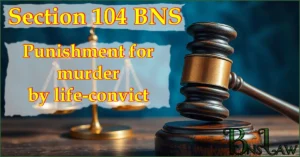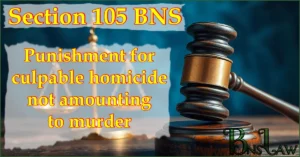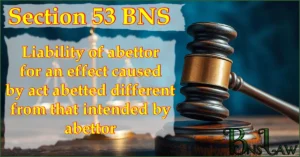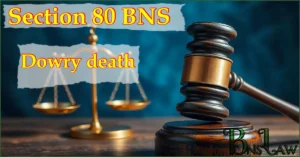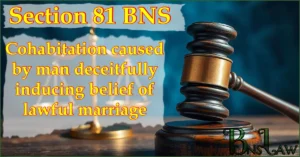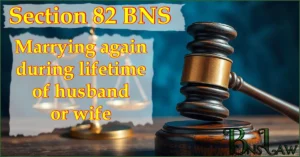Section 299 BNS
Whoever, with deliberate and malicious intention of outraging the religious feelings of any class of citizens of India, by words, either spoken or written, or by signs or by visible representations or through electronic means or otherwise, insults or attempts to insult the religion or the religious beliefs of that class, shall be punished with imprisonment of either description for a term which may extend to three years, or with fine, or with both.
READ OTHER SECTIONS OF CHAPTER XVI — OF OFFENCES RELATING TO RELIGION
| Section No. | Section Title |
|---|---|
| 298 | Injuring or defiling place of worship with intent to insult religion of any class. |
| 299 | Deliberate and malicious acts, intended to outrage religious feelings of any class by insulting its religion or religious beliefs. |
| 300 | Disturbing religious assembly. |
| 301 | Trespassing on burial places, etc. |
| 302 | Uttering words, etc., with deliberate intent to wound religious feelings of any person. |
FAQs of BNS Section 299
-
299 BNS punishment and fine
Punishment and fine under Section 299 of the BNS: Imprisonment for 3 years, or fine, or both.
-
299 BNS cognizable or not
The offence under Section 299 of the BNS is cognizable.
-
299 BNS bailable or not
The offence under Section 299 of the BNS is non-bailable.
-
299 BNS trial court
Offence specified in Section 299 of the BNS is triable by the Magistrate of the first class.
Important Points
- Cognizable Offences: These are offences where a police officer can arrest a person without a warrant.
- Non-Cognizable Offences: These are offences where a police officer cannot arrest a person without a warrant.
- Bailable Offences: These are offences where the accused can get bail from the police station itself. All bailable offences are listed in the First Schedule of the Bharatiya Nagarik Suraksha Sanhita (BNSS).
- Non-Bailable Offences: Offences in which bail is not granted directly from the police station but after hearing the case in the court, the judge decides when bail will be granted. All non-bailable offences are listed in the first schedule of the Bharatiya Nagarik Suraksha Sanhita (BNSS).
- In the above FAQ, “trial court” means the court that has jurisdiction to try the offence.
- In the above FAQ, the expression “Magistrate of the first class” and “Any Magistrate” does not include Executive Magistrates.
Read other Sections of the BNS
Reference Link: New Criminal Laws (BNS), Ministry of Home Affairs


